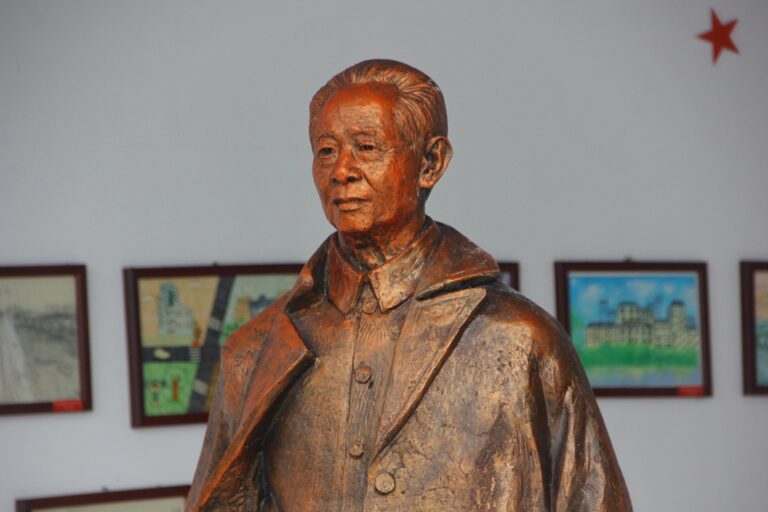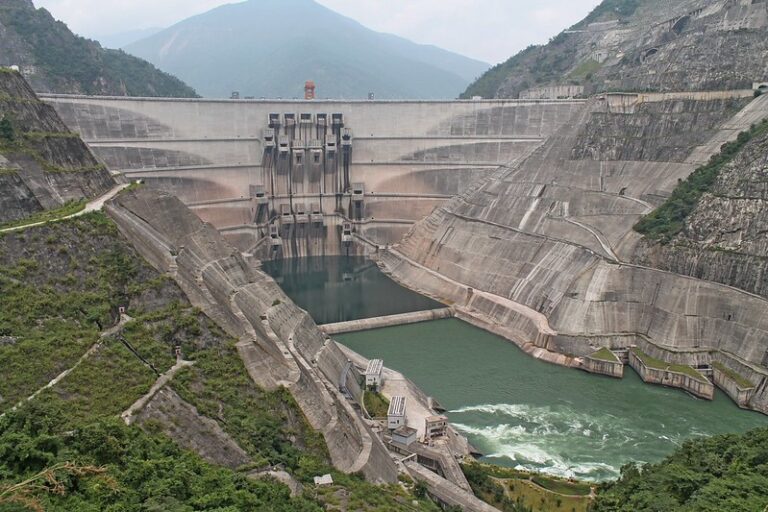
When thousands of pagers exploded in Lebanon and Syria on September 17 and 18, killing at least 42 people, Hungary-Taiwan relations were thrust into the spotlight. While no one has claimed responsibility, the attack targeted members of Hezbollah, the Islamist political party and militant group from Lebanon, implicating Israel.
The pagers bore the logo of Gold Apollo, a Taiwanese electronics manufacturer, whose chairman denied having made the devices, explaining that BAC Consulting – a Budapest-registered firm – used the Gold Apollo logo under a licensing agreement. Taiwanese officials also confirmed that none of the pager components originated in Taiwan.
Meanwhile, BAC Consulting’s Italian-Hungarian CEO and owner clarified that the company acted only as an intermediary. A spokesperson for Hungarian Prime Minister Viktor Orbán confirmed that BAC had no manufacturing operations in Hungary and that the pagers had never entered the country. As of this writing, the origin of the devices remains unclear, with Bulgarian operations of a Norway-based company linked to their sales also under investigation.
Despite the incident, economic ties between Taiwan and Hungary are unlikely to suffer. Private investment from Taiwan in Hungary remains robust, with figures from the European Economic and Trade Office in Taipei showing that almost 90% of Taiwanese foreign direct investment (FDI) to the EU in 2020 flowed through Hungary. Additionally, 18.8% of Taiwan’s FDI stock in the EU was in Hungary, second only to the Netherlands. Interestingly, Hungary has the highest FDI stock from both Taiwan and China among the CEE3 – that is, Hungary, Poland, and the Czech Republic – much of which is high-value investment from large Chinese and Taiwanese multinational enterprises (MNEs). The incident has, however, raised the question of whether Taiwan’s lack of political relations and Beijing’s influence over Budapest could be problematic for Taipei in the long run.
The Odd Couple
Taipei and Budapest are strange bedfellows. One is a democracy and a champion of human rights, while the other has embraced elements of authoritarianism and passed legislation targeting LGBTQ+ people and immigrants. Not only do Beijing and Budapest have more in common in terms of their governance models, including the capricious personal rule of their leaders, but they have long-standing historical ties as well. Hungary was among the first countries to recognize the People’s Republic of China (PRC) in October 1949, with both countries sharing remarkable similarities in their economic transitions.
As Taiwanese academic Wu Yu-shan notes, common values between Beijing and Budapest interacted with their politico-economic institutions. While Hungary’s New Economic Mechanism era – started by Prime Minister János Kádár – began a decade earlier than China’s Reform and Opening Up era under Deng Xiaoping, the two overlapped and featured clear parallels. Both countries abandoned rigid ideological dogma in favor of consumption-oriented development. Both leaders had also been victims of purges by their hardline Stalinist predecessors and returned to power keenly aware of the dangers of ‘charismatic despotism,’ which was instrumental in removing ideological constraints and paving the way toward market socialism.
Despite this, Taiwan started cultivating ties with Hungary by the late 1980s, as it transitioned to democracy. In 1988, Taiwan initiated direct trade with seven CEE countries, opening a trade office in Budapest the following year and a China External Trade Development Council (CETRA) office — now the Taiwan External Trade Development Council (TAITRA) office — in 1990. Soon after, Taiwan’s Overseas Economic Cooperation and Development Fund – now the International Cooperation and Development Fund (TaiwanICDF) – together with a joint fund with the European Bank for Reconstruction and Development, extended soft loans and investments to the CEE region.
However, normalization of political relations between Taipei and Budapest never materialized, especially as Beijing’s influence grew in parallel. Having begun with a flood of investments from Taiwan’s small- and medium-sized enterprises (SMEs), which Beijing could not match at that point — particularly during the fallout over the Tiananmen crackdown — the decade ended with Chinese multinational enterprises entering the Hungarian market contemporaneously with Taiwanese MNEs. In March 2002, a visa was granted to Taiwan’s then Vice President Anette Lu to attend the Liberal International Congress in Budapest, marking the first participation in this event by a high-ranking Taiwanese official. However, following a backlash from Beijing, Hungary opposed a motion to include Taiwan’s representation at the UN on the agenda of the 57th UN General Assembly just months later – a move intended to placate Beijing.
Beijing Takes Center Stage
Fast-forward 22 years, and Beijing’s influence in Hungary has only strengthened. Along with Serbia, Hungary is one of the few countries left that remain enthusiastic about the 14+1 — China’s cooperation framework with CEE. Aside from France, Belgrade and Budapest were the only stops on Chinese President Xi Jinping’s tour of Europe in May. In Hungary, Xi spoke of a “golden voyage” in bilateral ties, which were upgraded to an ‘all-weather comprehensive strategic partnership.’ What this entails remains unclear, but Orbán emphasized cooperation in nuclear power. In addition, 18 agreements were announced, including a railway project that would transport goods from Chinese factories in eastern Hungary to Western Europe, and a high-speed railway connecting central Budapest to its airport.
Xi further stated that the Budapest-Belgrade project would move forward. Like many BRI projects, this has suffered setbacks. Launched with an initial budget of €2.1 billion in 2015, the railway – 85% of which was supposed to be funded by China’s Exim bank – needs additional funding. Meanwhile, a failure by the Hungarian-Chinese contracting consortium to meet the EU’s safety standards remains an obstacle, with the Hungarian partner having reportedly withdrawn workers and machinery as of September 2023.
Despite such hiccups, the Orbán-Xi partnership continues. For Hungarian opposition figures, this closeness stems from two related considerations. “The first reason is quite simple: Orbán needs money to maintain his system of clientelism,” says Márton Tompos, leader of the Momentum Movement party and a member of Hungary’s National Assembly. “The second originates from his nature: he hates to be cornered and wants space for political movement, so if he has to trade Hungary’s EU and NATO membership for that, he will do so.”
Business as Usual?
As one of the few politicians in Hungary who openly advocates for closer ties with Taiwan, Tompos has called Taipei a “better alternative” to China and “a very reliable partner.” In an interview with Taiwan’s state-owned Central News Agency, Tompos said Taiwanese businesses enjoyed a better reputation than their Chinese counterparts for their treatment of workers. Having toured Taiwan with a European delegation in August, Tompos is positive but pragmatic about the future of Hungary-Taiwan relations. “Taiwan has a massive investment budget for the [CEE] region; Hungary just doesn’t use it,” he says. “Unfortunately, it won’t, as long as Orbán is in charge.”
On the Taiwanese side, observers bemoan a lack of cohesive strategy. “There are no significant policies from central government about the CEE countries,” says Shih Fu-sheng, a professor in the Central and Eastern European Center at Taiwan’s Soochow University. “We just follow US opinion and popular international ideology.”
As for the pager incident, Taiwanese officials do not anticipate a significant fallout from it. At the same time, with Hezbollah having suggested that Israel’s spy agency Mossad could infiltrate Hungary much more easily than Taiwan – where it believed the devices had been manufactured – the issue of tighter quality assurance and due diligence from Taiwanese companies might be important. Thus far, the topic has, however, received scant attention from officials and media in Taiwan.
“Taiwanese SMEs welcome any profit opportunity,” says a former foreign ministry official, who spoke on condition of anonymity. “They are just happy when someone comes knocking on their door.” Tompos concurs but thinks politics may eventually play a hand. “Taiwanese investment is at risk, not because of recent events, but because of Orbán’s extremely pro-Beijing policies,” he says. “That’s much more concerning.”
But a Hungarian analyst who also spoke anonymously, had a different view. “Hungarian-Taiwanese economic relations have not been a secret to China, especially as some of them are linked to the PRC, such as Huawei-Foxconn cooperation,” she said. “So, I don’t see any problem.” Other Taiwanese MNEs such as Yageo and Giant also have supply chain links to China. This points to the apolitical nature of Taiwanese investment, which contrasts with state-owned or -backed Chinese companies, where business is underscored by political closeness.
Other Hungarian observers are optimistic about potential diplomatic improvements. “Taiwan will look for opportunities to reinforce cooperation with Hungary, by relying on the argument that they are bound by a shared experience,” says Zsuzsa Anna Ferenczy, an assistant professor at Taiwan’s National Dong-Hwa University. “This is even more relevant in a world where democracy is being challenged by authoritarian threats” and “there is a renewed struggle against authoritarian revisionism as led primarily by the Russia-China alignment.”
Written by
James Baron
James Baron is a Taipei-based freelance journalist focusing on Taiwan’s history, culture, and foreign relations. From 2006-2008, he worked as an editor for Taiwan’s official development assistance agency, the TaiwanICDF, under Taiwan’s Ministry of Foreign Affairs. His work has appeared in Foreign Policy, The Diplomat, UnHerd, and The Parliament Magazine, among other publications, and he is a regular contributor to Taipei Times, Global Asia, and Taiwan Business Topics - the magazine of the American Chamber of Commerce in Taiwan.


